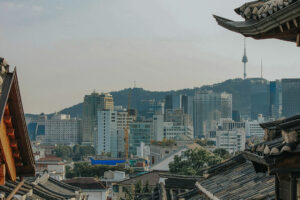RoK: A friend of long standing
The Philippines has been friends with the Republic of Korea (RoK) for 75 years. It was in 1949 that our country became the fifth in the world to extend diplomatic recognition to the RoK after its establishment. Subsequent events in history only strengthened these bonds. Under the United Nations Command, the Philippine Expeditionary Force to […]

The Philippines has been friends with the Republic of Korea (RoK) for 75 years. It was in 1949 that our country became the fifth in the world to extend diplomatic recognition to the RoK after its establishment.
Subsequent events in history only strengthened these bonds.
Under the United Nations Command, the Philippine Expeditionary Force to Korea was deployed during the Korean War in the 1950s. We deployed five battalions as our contribution to the war effort. The Philippines served as the fifth largest troop contributor, providing mobile combat teams, artillery, reconnaissance units, engineers, and medical personnel.
Over the next few decades, the bonds have only grown, especially since both countries are in precarious parts of the region, constantly under threat from their surroundings. Indeed, while the world has become dynamic and technology-powered, its situation has also become complex. The threats are of different facets and on different levels, and on numerous fronts.
It is because of the nature of these threats that we turn to our longtime friends for support.
The situation in which the Philippines now finds itself is a rich example of the lengths that friends go to for each other. The Philippines scored an international legal victory in the form of a favorable ruling from the Permanent Court of Arbitration in July 2016 over competing claims over parts of the South China Sea which we call the West Philippine Sea. China, however, has been obstinate in its refusal to acknowledge the arbitral court’s jurisdiction over it. It has been committing acts that, despite the ruling, display its defiance for all the world to see.
Crucial to our response to such threats to our defense, as a maritime and archipelagic nation, are our partnerships with countries for the acquisition of military assets.
The RoK has been a consistent and staunch supporter of the arbitral award accorded to the Philippines in 2016. The support has not been through mere rhetoric, either. Its defense industry is proven to be technology-capable and reliable, and this has been an area of strong support and partnership.
Specifically, the Philippines has acquired from South Korea fighter planes and missile corvettes as part of efforts to enhance our defense capabilities. Between 2015 and 2017, the Philippines acquired 12 RoK-made FA-50s, which are now being operated by the Philippine Air Force.
And then, it was at the shipyard of Korean shipbuilder Hyundai Heavy Industries that the Philippines launched the BRP Miguel Malvar. This vessel is the first of two missile corvettes acquired under the Philippine Navy’s Corvette Acquisition Program worth P28 billion. These corvettes, capable of anti-ship and anti-submarine missions, are expected to be delivered in 2025 and 2026 with the objective of strengthening the Philippines’ capabilities to defend its territory against foreign actors.
In a speech, Defense Secretary Gibo Teodoro highlighted the quality and reliability of South Korean equipment and emphasized that these acquisitions form part of the country’s Comprehensive Archipelagic Defense Concept.
These days, however, defense refers to more than just physically securing our tangible assets and territories. We are not just confronted with security threats in the maritime and aerial domains but in the cyber domain as well.
The Philippines is facing disinformation tactics that proliferate amid the weaponization of social media, including false narratives and data breaches targeting government agencies by suspected hackers based in China.
Meanwhile, the RoK is known for being one of the most connected countries worldwide, with around 97.2% of its population using the internet, according to Statista. It is also one of the countries with the highest average mobile internet connection speed as of June 2024.
It follows thus that the RoK would exert much effort on protecting its citizens, institutions, and infrastructure from cybercriminals. In fact, it faces challenges with North Korean threating to target its critical infrastructure. Earlier this month, the RoK and the United States held the 7th Working Group to counter cyberthreats posed by the Democratic People’s Republic of Korea. This aims to institute strategies to prevent and disrupt cryptocurrency heists, address cyber espionage against the defense sector, information sharing, and capacity building.
This is thus another area for future collaboration. Our two countries may also explore engaging in partnerships to develop cybersecurity capabilities against aggressive neighbors. We may reinforce each other’s capabilities through information sharing, joint training, and technology transfers to safeguard critical assets against state-sponsored malicious actors.
The Philippines and the RoK have nurtured their friendship for 75 years and given these new threats but also new opportunities to work together, and given the shared will to defend the rules-based order in the material and the cyber-domain, that friendship is expected to become even deeper and richer.
The robust bilateral relations between the Philippines and the RoK were founded on the shared values of freedom and democracy. It remains that way today.
Victor Andres “Dindo” C. Manhit is the president of the Stratbase ADR Institute.














